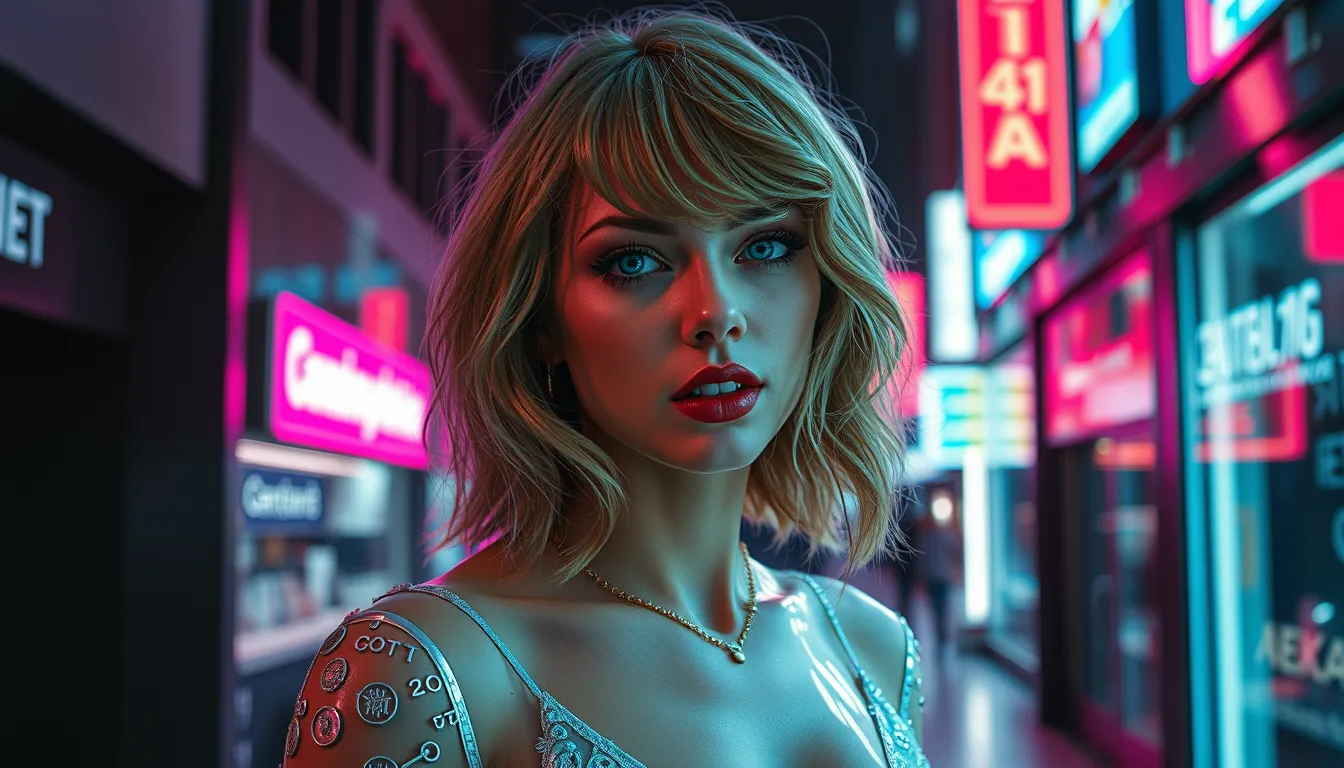Now Reading: Taylor Swift AI Controversy: Authentic Promo Videos
-
01
Taylor Swift AI Controversy: Authentic Promo Videos
Taylor Swift AI Controversy: Authentic Promo Videos

Taylor Swift AI Controversy: Authentic Promo Videos
In today’s rapidly evolving music industry, the balance between technological innovation and authentic artistry is more critical than ever. The recent Taylor Swift AI controversy has ignited an important debate among fans and critics alike. With the rise of artificial intelligence in creative domains, many are questioning the role of technology in crafting promotional content, especially when it comes to a beloved and iconic figure like Taylor Swift. This article dives deep into this issue, examining the implications, fan reactions, and future prospects for authentic music promotion.
The Intersection of Technology and Authenticity in Music Promotion
As technology advances, modern marketing strategies often incorporate AI-generated content. Taylor Swift promo videos are at the forefront of this trend. Designed to capture attention and push the envelope in creativity, these videos have recently come under scrutiny. Critics argue that while AI can produce visually stunning results quickly, it lacks the genuine human touch that has come to define Taylor Swift’s artistic style.
Key points in this debate include:
- The speed and efficiency of AI versus the emotional depth of human creativity.
- Risks of losing the personal connection with fans when technology replaces traditional methods.
- The potential long-term impact on an artist’s image and authenticity.
Every era in music promotion has faced changes; however, genuine artistic expression remains a constant value. With the increasing prominence of AI, the challenge is to integrate innovative methods without compromising the essence of what makes an artist resonate with their audience.
Innovation Meets Tradition: Understanding the Debate
The heart of the Taylor Swift AI controversy lies in the conflict between innovation and tradition. On one side, proponents of AI argue that technology allows artists to explore new creative horizons and reach broader audiences with innovative storytelling techniques. On the other side, fans and purists emphasize the irreplaceable nature of authenticity—something that cannot be replicated through algorithms or digital enhancements.
Technological advancements in music promotion offer:
- Efficiency in video production and marketing.
- Enhanced visual effects and dynamic storytelling.
- Opportunities for experimental content that can push the boundaries of traditional music videos.
Despite these advantages, many observers worry that relying too heavily on AI could diminish the emotional connection between an artist and her audience. This debate is especially potent when dealing with figures like Taylor Swift, whose career has been built on a foundation of heartfelt, personal storytelling.
Fan Reactions: Fan Disappointment Over AI Promo Videos
One of the most telling aspects of this controversy is the reaction from the fans. Numerous social media posts and online forums have witnessed a surge of comments expressing what can be summed up as ‘fan disappointment over AI promo videos.’ Fans are not only concerned about the quality of the content but also about the dilution of the authenticity that has long defined Taylor Swift’s work.
Key fan concerns include:
- A perceived lack of genuine effort in the creative process.
- Fears of a disconnect between the artist’s personal vision and the automated methods used in production.
- Calls for greater transparency around the techniques used in creating promotional material.
These criticisms underscore a broader sentiment among the fanbase: they want to see the human touch in every aspect of their idol’s creative output. Notably, the backlash from fans suggests that when it comes to promoting music, authenticity remains a non-negotiable value. For a detailed look into similar fan movements, you might explore discussions on platforms like Twitter and Reddit, where enthusiastic debates continue to shape public opinion.
Balancing Artistic Integrity with Technological Advancements
As industries across the board adopt AI and other innovative technologies, the challenge becomes one of balance. For Taylor Swift and her management team, addressing the AI controversy means acknowledging the benefits of technological evolution while simultaneously ensuring that every piece of content reflects her genuine artistic vision. In striving for this balance, several strategies can be adopted:
- Clear communication with the fanbase about the nature of AI involvement in promotional materials.
- Combining digital innovation with hand-crafted elements to ensure authenticity in every video.
- Engaging with fans directly to gain feedback and adjust creative processes accordingly.
Furthermore, partnering with reputable tech companies can help create a middle ground where technology complements creativity, rather than overtaking it. For example, established AI technology firms like OpenAI have developed tools that enhance creativity without replacing the vital human element. Similarly, innovating responsibly while staying true to artistic roots can set a model for other artists facing similar dilemmas.
Looking Ahead – The Future of Music Promotion
The Taylor Swift AI controversy is more than just a moment in pop culture; it is a reflection of the larger shifts in the music industry brought about by technological change. As artists continue to leverage digital tools, there is an increasing need for strategies that preserve the core values of creativity and authenticity.
In conclusion, the ongoing debate surrounding Taylor Swift promo videos is emblematic of a broader cultural evolution where traditional artistic values meet the high speed of digital innovation. While AI offers exciting possibilities, the outcry for genuine, heartfelt artistry reminds us why fans invest emotionally in their favorite artists. By carefully balancing technology with tradition, artists can continue to innovate while staying true to the essence of their creative identity. The journey ahead is one of adaptation, transparency, and respect for the deep connection between musicians and their audiences.
As this controversy unfolds, it will be interesting to see how Taylor Swift and her production team navigate the complex terrain of modern music promotion. Ultimately, the goal is to achieve a harmonious balance where the benefits of technology enhance rather than overshadow artistic integrity.
For further reading on balancing technology and creativity, check out articles on reputable sites like Rolling Stone and Billboard. These resources provide additional insights into the evolving landscape of music promotion in today’s digital era.

























